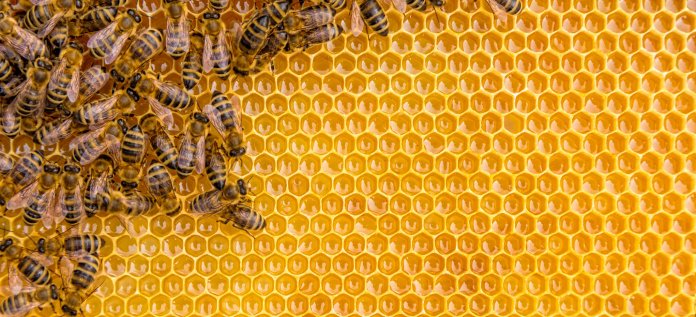Would you like to some herbicide with your tea? Or how about spreading some lawn chemicals on your toast? Unfortunately, that may be exactly what is happening. Glyphosate, the main ingredient in Roundup, has found its way into the American honey supply. It is becoming more and more difficult to find honey that is not contaminated with Roundup.
Recently, U.S. Right to Know, a public interest group, announced that they reviewed FDA documents showing glyphosate residues in American honey samples. These documents reportedly found these residues in three honey samples collected in the U.S. The concentrations found were 107 parts per billion, 41 parts per billion, and 22 parts per billion. Additional reports say that FDA officials have found glyphosate in many other honey samples.
While there is no regulation concerning glyphosate in food in the United States, the European Union has a maximum allowance of 50 parts per billion. Some would argue that this is still too much poison to be ingesting, and Roundup is indeed a poison. Last year, the International Agency for Research on Cancer declared glyphosate a “likely carcinogen.” There have also been links found between Roundup and inflammation, cell damage, Alzheimer’s disease, and Parkinson’s disease.
While the discovery of glyphosate in our honey supply is highly unfortunate, it is not surprising. The use of Roundup is skyrocketing across the United States: it has risen 15-fold since Monsanto’s Roundup Ready GMO crops were created about two decades ago. Because of this widespread use, pollinating bees are becoming exposed to Roundup, and bringing it back to their hives. The Roundup picked up by the bees then winds up in our honey. This is incredibly disturbing: I can’t imagine that anyone would want that stuff in their food.
Perhaps the saddest part about the contamination of our honey is that honey itself is an incredibly healthy, remarkable superfood. When used in moderation, it is unquestionably the sweetener of choice. The healing properties of raw, organic honey are vast and varied. The following are just a few of the many:
– Honey is rich in nutrients, including B-vitamins, and a wealth of minerals, amino acids, and antioxidants.
– Honey can help strengthen the immune system.
– Eating local honey may help to alleviate local allergies, because of the low-dose exposure to local pollen.
– Many people report that honey helps to soothe symptoms of asthma.
– Honey is well-known for helping to relieve coughs, even better than many over-the-counter cough medicines.
– Honey can help to relieve the burn of acid reflux.
– When used in moderation, it may even help to balance blood sugar levels.
– Honey helps bring balance to your gut, which is important for both digestion and immunity.
– Thanks to its antimicrobial properties, honey can help to soothe skin irritations, insect bites, and minor burns, along with any inflammatory irritation of the skin.
– Honey can help to moisturize skin and hair, and strengthen nails.
The list of honey’s benefits goes on… but one thing that you certainly don’t want from your honey is Roundup. This makes it all the more important to choose local, organic sources of raw honey. The bear-shaped bottle in the grocery store may cost less, but it doesn’t contain nearly as many benefits… and it may contain weed killer.
– Dr. Joshua Levitt


